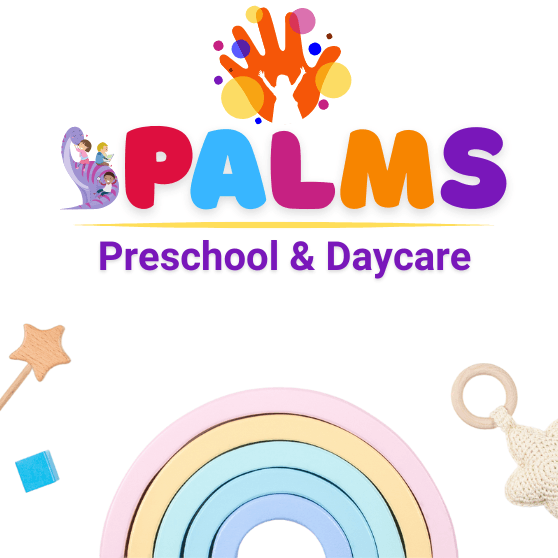



Palms Preschool & Daycare Blog
Nurturing Young Minds:
The Joys and Benefits of
Preschool Education
Preschool marks a pivotal stage in a child’s development, laying the foundation for future learning and personal growth. As the first step in formal education, preschool offers a unique blend of play and structured activities designed to nurture young minds. In this blog post, we will explore the myriad benefits of preschool education and why it is a crucial phase for children.
The Importance of Preschool Education
Social Development
Preschool provides a structured environment where children can interact with their peers, learn to share, and develop social skills. This interaction is essential for building relationships, understanding social norms, and developing empathy and cooperation.
Cognitive Skills
Through various activities and play, preschool helps in the development of cognitive skills. Children engage in problem-solving tasks, learn to follow instructions, and enhance their memory and attention spans. These skills are fundamental for academic success in later years.
Language and Communication
Preschool is a critical period for language acquisition. Through songs, stories, and conversations, children expand their vocabulary and improve their communication skills. Teachers encourage children to express themselves, ask questions, and listen to others, which fosters effective communication.
Emotional Growth
In a preschool setting, children learn to understand and manage their emotions. They experience a range of feelings and learn appropriate ways to express them. This emotional intelligence is vital for their overall well-being and helps them navigate various social situations.
Motor Skills Development
Preschool activities often include both fine and gross motor skills exercises. From drawing and cutting to running and jumping, these activities enhance physical coordination and promote a healthy lifestyle.
Unique Approaches in Preschool Education
Play-Based Learning
Play is a natural way for children to learn. Preschool programs that emphasize play-based learning allow children to explore their interests and learn at their own pace. This approach fosters creativity, imagination, and a love for learning.
Montessori Method
The Montessori method encourages self-directed learning with an emphasis on hands-on activities and collaborative play. Children learn through exploration and discovery, which promotes independence and confidence.
Reggio Emilia Approach
This approach focuses on the child’s natural curiosity and creativity. It encourages children to express themselves through various forms of art and communication. The environment is considered the “third teacher,” with classrooms designed to inspire learning and exploration.
Project-Based Learning
In project-based learning, children engage in projects that interest them. These projects can range from building structures with blocks to creating art pieces. This method fosters critical thinking, problem-solving, and teamwork.
Conclusion
Preschool education is a critical stepping stone in a child’s academic and personal development. It offers a nurturing environment where children can grow socially, emotionally, and intellectually. By choosing the right preschool and understanding its benefits, you can set your child on a path to lifelong learning and success. Embrace this exciting phase, and watch your child thrive in the vibrant world of preschool!


Palms Preschool
& Daycare
- Small Teacher to Child Ratio
- Air-Conditioned Classrooms
- Safe & Secure Location
- Cab Facility Available
- Expert Teachers